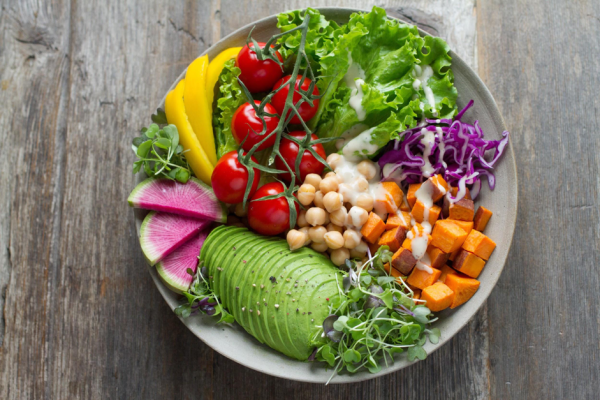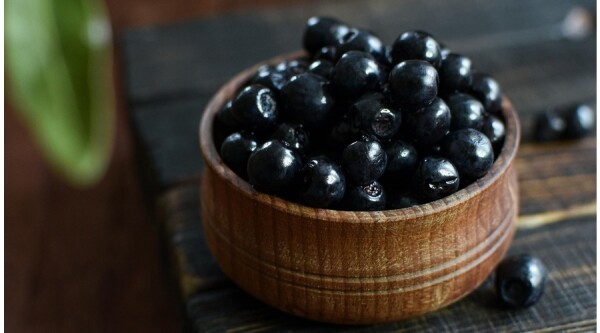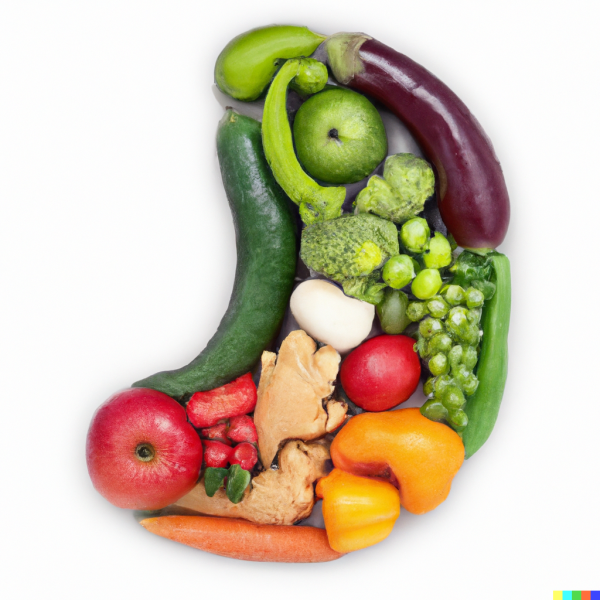Looking for the best natural digestive remedies?
Feeling digestive discomfort is not fun, roughly 10-15% of the world's population suffers from IBS-type symptoms (1). We often reach for the easiest solution to ease our pain. Most of us don’t consider how to protect our intestinal health long-term and prevent the symptoms from occurring at all.
There are a few cornerstones to good gut health, and blackcurrants hit all the bases.

Prebiotics and Probiotics
Do you ever stop to question how your intestine actually works? When it’s working well it’s easy to take this slick system for granted, but when it stops working so well, we are left unsure of where to begin in making things right.
Did you know that your digestive system relies on the health and happiness of millions of tiny microbes? Your gut microbiome mediates everything from inflammation to bloating, to gas, and movement.
These microbes feed on ‘probiotics’, and probiotics feed on ‘prebiotics’: blackcurrants contain plenty of prebiotics that help feed your microbiome, mitigating unwanted symptoms of an unhappy gut population.
Fibre
Dietary fiber plays an essential role in regulating our gut microbiome and the movement of the smooth muscles in our digestive systems.
Blackcurrants can be effective at reducing gastrointestinal symptoms such as bloating, gas, constipation, and discomfort, due to their high fiber content.
Do you take note of your fiber intake?
Most diets lack both insoluble (found in grains, greens, and fruit skins) and soluble fiber (found in oats, nuts, beans, and berry skins) making digestion difficult, and bloating more likely. Fibre fills you up, increases gut motility, and feeds the beneficial bacteria in your gut resulting in increased responsiveness from insulin cells after a high carbohydrate meal.
Blackcurrant skins are high in both types of beneficial fiber, leaving you feeling comfortable and in control (2).

Antiinflammatory
Fibre plays many roles; by supporting the synthesis of important compounds in the intestine called short-chain fatty acids, fiber reduces systemic inflammation and supports sensitive stomachs. (3)
Blackcurrants may help to lower inflammation in people with irritable and inflammatory digestive systems through their high fiber content, but there’s another part of this bold berry that reduces inflammatory responses.
Blackcurrants boast the world’s highest levels of anthocyanins: a compound shown to reduce inflammatory markers from your belly to your brain (4). Wouldn’t we all prefer world-class care?
Blackcurrants have also been shown to reduce spasms in the digestive tract (you are probably well acquainted with that feeling if you’re a sensitive type). A regular intake of blackcurrants, therefore, could leave you at ease about the food you eat (5)!
Long-term metabolic health
Let’s think longer-term…
The gut is referred to as our second brain, it’s surprising how much it impacts our entire body. Studies have shown that gut dysbiosis -an imbalance in our gut microbiome- can lead to weight gain and poor insulin response; poor insulin response, in turn, increases the likelihood of gaining weight leading to a disruptive and difficult cycle. (6)
Blackcurrants (along with other berries high in polyphenols) help to improve glucose response after eating helping to break the cycle (7).
The probiotic effects of anthocyanins have also been linked to reducing inflammation and breaking the cycle of gut dysbiosis that leads to obesity (8).

Your intestine is your second brain.
If you’re feeling inflamed, aggravated, or uncomfortable it’s well worth heeding your gut feeling with a strong, fiber-filled, prebiotic-packed, nutritional supplement like blackcurrants to keep your gut well for life.
REFERENCES
(1)American College of Gastroenterology. (2011). Irritable Bowel Syndrome - American College of Gastroenterology. [online] Available at: https://gi.org/topics/irritable-bowel-syndrome/.
(2)Paturi, G., Butts, C.A., Monro, J.A. and Hedderley, D. (2018). Effects of Blackcurrant and Dietary Fibers on Large Intestinal Health Biomarkers in Rats. Plant Foods for Human Nutrition, 73(1), pp.54–60. doi:10.1007/s11130-018-0652-7.
Kuo, S.-M. (2013). The Interplay Between Fiber and the Intestinal Microbiome in the Inflammatory Response. Advances in Nutrition, [online] 4(1), pp.16–28. doi:10.3945/an.112.003046.
(3)Henriques, J.F., Serra, D., Dinis, T.C.P. and Almeida, L.M. (2020). The Anti-Neuroinflammatory Role of Anthocyanins and Their Metabolites for the Prevention and Treatment of Brain Disorders. International Journal of Molecular Sciences, [online] 21(22), p.8653. doi:10.3390/ijms21228653.
(4)Miladinovic, Bojana & Brankovic, Suzana & Randjelovic, Milica & Milutinović, Milica & Kitić, Nemanja & Šavikin, Katarina & Kitic, Dusanka. (2018). Antispasmodic Effect of Black Currant (Ribes nigrum L.) Juice and its Potential Use as Functional Food in Gastrointestinal Disorders. Medical Principles and Practice. 27. 10.1159/000487202.
(5)Amabebe, E., Robert, F.O., Agbalalah, T. and Orubu, E.S.F. (2020). Microbial dysbiosis-induced obesity: role of gut microbiota in homoeostasis of energy metabolism. British Journal of Nutrition, 123(10), pp.1–11. doi:10.1017/s0007114520000380.
(6)Törrönen, R., Sarkkinen, E., Tapola, N., Hautaniemi, E., Kilpi, K. and Niskanen, L. (2010). Berries modify the postprandial plasma glucose response to sucrose in healthy subjects. The British Journal of Nutrition, [online] 103(8), pp.1094–1097. doi:10.1017/S0007114509992868.
(7)Jamar, Giovana & Estadella, Debora & Pisani, Luciana. (2017). Contribution of anthocyanin-rich foods in obesity control through gut microbiota interactions. BioFactors (Oxford, England). 43. 10.1002/biof.1365.


